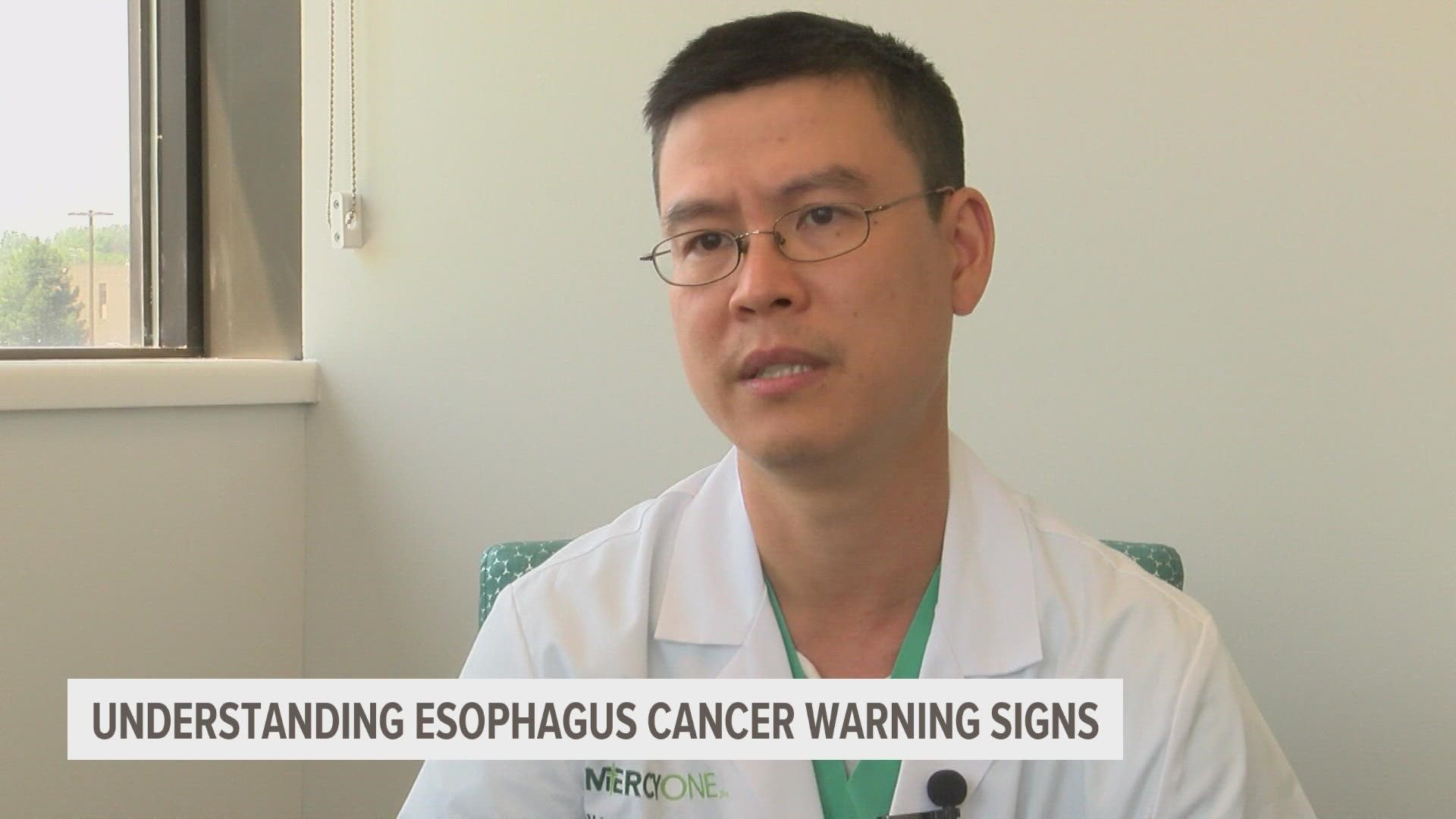DES MOINES, Iowa — In 2020, at the onset of the pandemic, a national study found cancer diagnoses dropped by nearly 50%.
But that's not because fewer people were getting cancer. Officials from MercyOne Hospital say it was a shift in people not getting screenings or check ups, whether it was because of hospital restrictions or fear over the virus.
Now, doctors are seeing more cancers at severe stages.
Avid gardener and native Iowan Vern Eagen says he's lived a healthy life until last September when he had trouble swallowing.
"I kind of ignored it, which I shouldn't have, but I did," Eagen said.
It got worse, to the point where he constantly vomited and couldn't eat. That's when he knew something was wrong and it was time to get help.
"Where the esophagus joins the stomach. That's where the cancer was," Eagen said.
The doctors diagnosed Eagen with stage 2 esophagus cancer. His treatment included chemotherapy, radiation and, most nerve-wracking for Eagen, surgery.
"So I asked, if I don't do the surgery, what? Well, it's gonna get worse. And within maybe a year, I won't be here," Eagen said.
Dr. Viet H. Le, an oncology surgeon at MercyOne Hospital, emphasized the importance of being aware of different types of cancers like esophagus cancer.
"In the last 20 years or so, the incidence of esophagus cancer, especially here in Iowa has been steadily increasing," Le said.
But what symptoms would be a red flag? Le says there's a few common ones that you shouldn't ignore.
"Patients who are experiencing heartburn, or regurgitative symptoms, at least once a week, that the risk of developing esophagus cancer is seven times higher compared to those that don't have those symptoms," Le said.
The risk Le speaks of is one that can increase by ten times if you are experiencing symptoms like acid reflux at night.
The surgery to remove the cancer can be tricky.
"Just because of the location of the esophagus, you know, it's, it's near all the critical structures, especially in the neck and the chest," Le said.
But luckily for Eagen, a new surgery was available and he would be the first in central Iowa to get it.
"I didn't know I was the first till afterwards and or if he told me before I didn't know it," Eagen said.
It would be a robotic surgery, with the surgeon controlling the machine's every move. This type of surgery allows for a lot less invasive operation, making a smaller incision. Le says the benefits of the new surgery is a multitude including less pain and a quicker recovery time as well as overall success.
"The visualization with the robot platform allow us to see much better, and so that has translate to less blood loss in surgery," Le said.. "So, the immediate morbidity associated with the surgery tremendously improve with the use of the robotic platform.
While Eagen says the road to recovery was tough, he knows it was it was worth it.
"He said everything looks good. Got it all. There's nothing active," Eagen said.
With cancer off the agenda, what's next for Eagen?
"Believe it or not, I'm glad to be able to mow my yard and take care of the flowers in the garden," Eagen said.
Esophagus cancer typically happens in people over 55. In Iowa, doctors say men are three times more likely to develop the cancer than women.
To be clear, having symptoms like heart burn or acid reflux doesn't mean you will develop this cancer. However, if you have prolonged symptoms, doctors recommend seeing your primary care physician to get it checked out.

